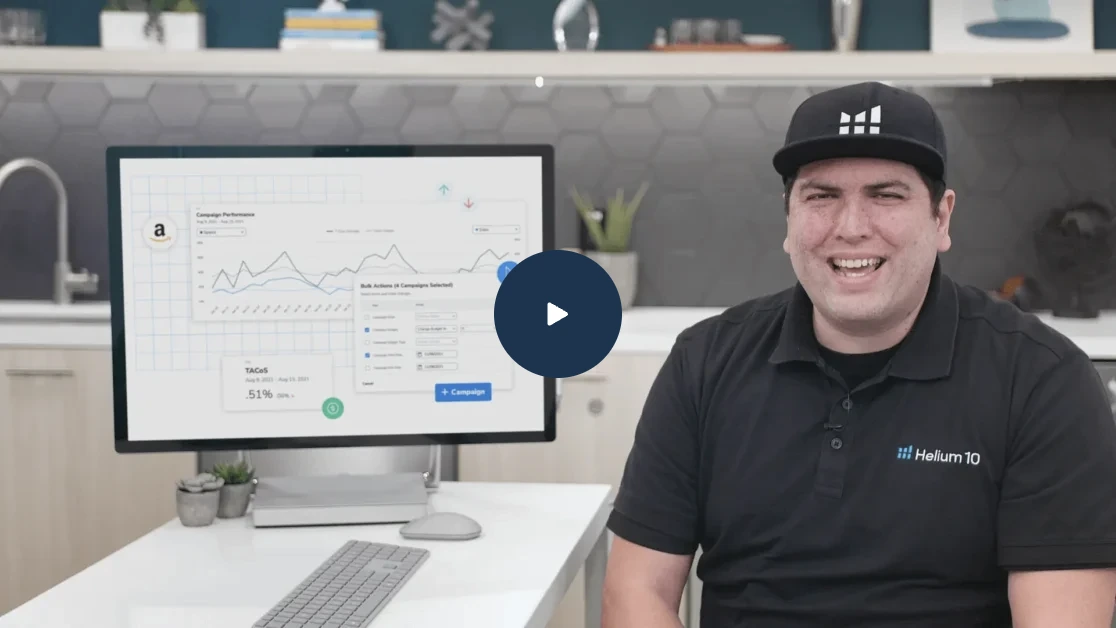
Dynamic Bidding

Table of Contents
- What is Dynamic Bidding?
- Adjust Bids by Placement
- Bidding Strategy
- What should I set if I’m using Prestozon Automation?
- What new strategies can I try?
- Run a Test
- Low Bid + Aggressive Adjustment
- Example
- Supercharge Your Research
- Winning Customers from Competitors
- What will happen over time?
Dynamic Bidding is an exciting new feature set available to Amazon advertisers that allows the advertiser to pursue a more flexible bidding strategy. Let’s take a look at what the feature does, how to use it with Prestozon, and some strategies you might consider experimenting with.
What is Dynamic Bidding?
Dynamic Bidding is a new setting at the campaign level that replaces Bid+ and adds some flexibility. The two main features are “adjust bids by placement” and “bidding strategy”, which for clarity’s sake could also be called “adjust bids by likelihood of conversion”.
Adjust Bids by Placement
Amazon now gives you the option to let their algorithm modify your bid if doing so would make you eligible for a placement at either top of search on page 1 or on a product page. You can choose to allow Amazon to increase your bid by up to 900% for either of these – you decide the percentage.
If an existing campaign had Bid+ enabled, it will now have a +50% value enabled for Adjust Bids by Placement for Top of Search.
Bidding Strategy
Dynamic Down: This was the implicit strategy used by Amazon up until October 2018 behind the scenes. All campaigns you have started up until that point ran on this strategy. Dynamic Down strategy allows Amazon to decrease your bid by up to 100% if their algorithm determines that that impression is unlikely to result in a conversion.
Dynamic Up and Down: Similar to Dynamic Down, this setting allows Amazon to increase your bid by up to 100% if their algorithm determines that the impression is likely to result in a conversion and reduce by up to 100% when it isn’t.
Fixed bids: The bid you set is the bid that Amazon will use, regardless of how the impression is expected to perform. This let you have more control on your spend but less efficiency.
What should I set if I’m using Prestozon Automation?
Prestozon’s bid algorithm was tuned to perform best with campaigns on the Dynamic Down strategy. If you don’t want to rock the boat, continue using this setting.
If you are interested in pursuing a more aggressive strategy we suggest using the Dynamic Up and Down and allowing some time for Prestozon Automation to settle on a new bid. Your bids are likely to increase as you win more impressions on search terms where Amazon increased your bid because their algorithm predicted a conversion. This should drive more conversions as well, depending on the accuracy of Amazon’s predictions. This accuracy is likely to vary per niche and product.
As always, keep your eye on the ACOS, not on the bid.
What new strategies can I try?
Experimentation is the name of the game when it comes to online advertising. It’s impossible to know what will work on a given account, so the best thing to do is try it out and see what happens!
Run a Test
We’re fond of running experiments in parallel to gather clean data to make the best decision. Consider running the following test:
- Duplicate a Performance campaign (i.e., a campaign with only exact keywords in it)
- Pause a random half of the keywords in the original campaign
- Pause the other half in the new one
- Select a different bidding strategy for the new campaign
This allows you to run a perfect experiment to see how the new strategy compares to the one you’re currently running. Make sure that you only do this with exact match keywords! If you duplicate a broad match (Research) campaign you’re likely to still have overlap of what search terms each campaign will get exposure to. See our post on Search Term Isolation for a deep explanation of why search term overlap is a problem.
Low Bid + Aggressive Adjustment
If winning the top of page placement is important to you (and it should be, especially if you have brand recognition in a competitive niche) then consider starting a new campaign with your most important exact match keywords, setting the bid somewhat low, and then turning on Dynamic Up and Down as well as Top of Search Adjustment to 900%. This will allow Amazon to adjust your bid up to 1,800% if their algorithm determines your ad is eligible for a Top of Search placement and is likely to convert.
Let’s look at an example of this strategy…
Example
Let’s imagine your average CPC for one of your products is $1.00. Start a new campaign with exact match keywords targeting the highest volume search terms for this product. These are easy to find by filtering Prestozon Analytics down to the campaigns currently advertising this product, navigating to the Search Term Explorer, and sorting by Impressions. Usually the top 10 search terms make up the majority of the volume.
Set the bid to, say, $0.20. Normally this wouldn’t get you any impressions as the competitive CPC is 5x that, but since you’ve turned on Dynamic Up and Down as well as set the Top of Search Adjustment to +900%, Amazon could bid up to $3.60 for a Top of Search placement that’s likely to convert! That is a highly competitive bid as it’s 3.6x the average CPC for this product.
A note on Search Term Isolation implications: Because the bid for other placements won’t be increased by as much, this keyword will primarily get impressions for Top of Search which allows you to run it in parallel with the standard Performance campaign in your Search Term Isolation structure without competing against it for the rest of the placements. You can think about the standard Performance campaign as the “rest of search” performance campaign and this new campaign as the “top of search” performance campaign.
As this bid is intentionally set low – and we want to keep it low – don’t do any bid management or automation on this campaign.
Supercharge Your Research
The idea behind a Research campaign is to find converting search terms. How convenient that Amazon will increase your bid if their algorithm thinks it will result in a conversion! Consider enabling Dynamic Up and Down on your Research campaigns to pursue these new conversions aggressively.
Winning Customers from Competitors
If winning a customer from a competitor is an important strategy for your products, such as if customers in your niche tend to be recurring monthly buyers, try using a high setting in the Adjust Bids by Placement for Product Pages in a Product Attribute Targeting campaign targeting your competitor’s products. This may be an expensive campaign, but if it wins you new customers with a high lifetime value it could be worth it.
What will happen over time?
It’s easy to see how these new Amazon offerings may drive up CPC over time. As the feature is so new, expect high performance out of the gate. As more bids are increased for the Top of Page placement, the CPC is likely to increase, and will stabilize over the course of 2019. Most advertisers are unlikely to be satisfied with a high ACOS, so at some point we may see these settings dialed back to achieve a target ACOS.
As bids targeting Top of Page and Rest of Search start to separate out, we hope that advertisers are more able to achieve their targets across both placements. Prestozon will be there to help you manage everything along the way.
Achieve More Results in Less Time
Accelerate the Growth of Your Business, Brand or Agency
Maximize your results and drive success faster with Helium 10’s full suite of Amazon and Walmart solutions.

